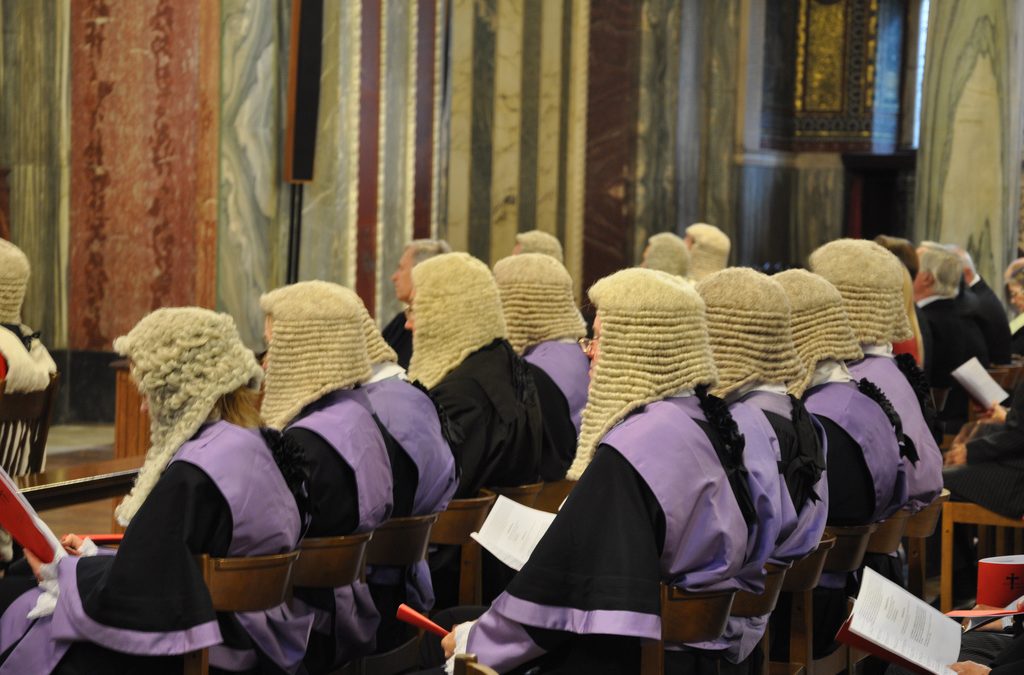
A Review of GDL Study Guides
November 4, 2016
Practising Law as a Global Citizen
November 24, 2016
What is marshalling? Why should I do it? I’m glad you asked…
Last August, on a warm summer’s morning I was escorted (of my own volition, I should say) to the chambers of a Circuit Judge at Bristol Crown Court. This marked the beginning of a truly interesting and insightful week ‘behind the scenes’ of the criminal justice system.
What I experienced is known as ‘marshalling’, therefore, for a week I was a ‘marshal student’. Marshalling involves shadowing a judge and, as with mini-pupillages (read about these here), varies in duration depending on the inclination of the judge in question.
Why Should I Marshal?
Marshalling is an important box to tick for those pursuing a career at the Bar, and a great experience for any aspiring lawyer. Pupillage and Inns of Court scholarship committees will be looking for this on your application in the same way that they will be looking for mini-pupillages and mooting (find out what this is here), so it is great if you can find a judge willing to have you marshal with them.
How Should I Go About Obtaining This Experience?
How do you do this? I obtained the email address for the judge I marshalled with from a fellow student who previously met him at a networking event, highlighting the value that networking can provide. I then emailed him with my CV and a short covering letter explaining what I thought I would get out of marshalling with him and why I was worthy of his time.
If you are unable to take advantage of an existing contact, and haven’t had any luck meeting judges through competitions or networking events, then it is always worth getting in touch with your local Crown Court (dealing with more serious criminal offences) or County Court (dealing with civil cases) to see what opportunities they might be able to offer you. Of course, if you have already joined an Inn there will be a marshalling programme available to you. (If you are an aspiring barrister and are not currently a member of an Inn there is always the option of joining one, but note that this will mean you may only apply to this Inn for BPTC scholarships.)
What Other Benefits Will Marshalling Bring?
CV-building aside, what other advantages does marshalling bring? Something I really valued from marshalling was the chance to discuss with a judge what he thought it meant to be a good advocate. It is clearly crucial that a barrister (or a student mooter!) understands how to get the court on-side and persuade effectively. Judges see examples of both excellent and poor advocacy on a regular basis. What’s more, they have usually spent significant time on the other side of the Bench themselves.
In addition to this, unless or until you become a judge you will at no other time in your life see the court room from this perspective. If you are lucky, the judge will invite you to sit next to him or her whilst the court is in session, which in the Crown Court means you will face the barristers and solicitors (if there are any present), and you will have a good view of the jury and defendant. It is also perhaps helpful for a barrister to know that behind the stern exterior of a judge lies a person, who, only five minutes ago may have been on the phone to the garage asking when his car will be ready.
What Might Marshalling Involve?
During my time at Bristol Crown Court, I witnessed bail applications, pleas in mitigation and sentencing hearings as well as a full trial, from the jury being sworn in to the defendant being sentenced to five years’ imprisonment. It was an excellent test of my analytical skills to read the case papers before the trial, see it played out blow by blow, and to give the judge my opinion on the appropriate sentence after a guilty verdict was returned by the jury. Furthermore, judges can be remarkably candid, and behind closed doors you may be given unique insights into, for example, the general consensus amongst the judiciary as to whether the present Lord Chancellor is doing a good job.
What If I Can’t Get Marshalling Experience?
Of course almost all cases are open to the public, so if you can’t get marshalling experience the next best thing is to sit in the public gallery and observe from there. The advantage to this is that often the court staff (the usher, the clerk, sometimes even the barristers) will notice a dedicated aspiring lawyer and discuss the case with you. This will also provide you with evidence of your commitment to becoming a barrister.
In fact, one of the most interesting things I heard in my time at Bristol Crown Court was said not by a judge but by a prosecutor. In summing up the case for the prosecution, where the defendant was a 60-year-old man with serious health problems, he stated that, for better or worse, “vulnerability is the daily currency of the criminal courts”. In other words, he argued that the Crown Court deals with vulnerable victims, witnesses and defendants on a daily basis, and juries should not make allowance for the vulnerability of a defendant in giving their verdict. Therefore, regardless of which side of the Bench you find yourself able to sit on, it is well worth spending some time seeing how our court system operates, even if it is, at times, sobering and inspiring in equal measure.





